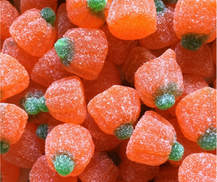
I think some of the main issues holding women back from seeking help with their menstrual cycles is that they are either uncomfortable talking about it, think that it's just "normal" (remember, just because it's common does not make it normal), they forget about it for 25 days until it happens again, or they don't want to take "the pill" (the suggestion of many medical doctors). What if I told you that your next 3 cycles could be your last painful periods ever?
Let me clarify, the pain I'm talking about is not endometriosis (ask more if you have this condition). I'm referring to the achy, monthly, 1-3 day pain that begins at around the same time as your period. If you have severe, sharp, ongoing pain that comes at different times of the month you need further workup to find out what's going on.
The latest information on antiinflammatories, like Advil, and painkillers, like Tylenol, suggest that they do direct harm to our organs - the kidneys, stomach and liver specifically. This research has made me want to share with you that there are alternatives to these potentially harmful band-aids, so that you may find solutions that support a healthy body in the long-run. Of course, quick-fixes can be lifesavers for those exceptional moments, but they are not recommended for regular (ahem.. monthly) use.
Why Does Menstrual Pain Happen?
To understand how to tackle this monthly pain, it's best to understand why it happens in the first place. Our bodies contain a careful balance of messengers that give signals to carry out different functions. One very common signal is inflammation, through the work of prostaglandins. Unfortunately, there are a wide variety of influences in our current world that push our body towards being inflamed: our diets, the air, chemical exposure, and even emotional triggers like stress. The reason that antiinflammatories are effective at (temporarily) eliminating menstrual pain, is because they block the signal for inflammation. As useful as this treatment can be in the short term, it does not get to the root of why this inflammation is happening in the first place.
One very important reproductive hormone that is influenced by common triggers of inflammation is estrogen. On a daily basis we are regularly exposed to several estrogen-mimicking compounds. The result is that we have much more estrogen signals in our body than we need. Consequently, the uterine wall gets thicker when it builds each month and it takes more effort to shed the lining, causing cramping and pain during your period.
What are Estrogen Disruptors?
Compounds that impact our normal estrogen levels by mimicking their form in the body are called Estrogen Disruptors. They include: pharmaceutical residues (most people have trace amounts of birth control pills and other medications in their bodies as a result of contaminated water supply), plastics and food packaging, flame retardants in furniture and clothing, conventional cleaning supplies, body care products (like shampoo, makeup, feminine hygiene products, moisturizing lotions). While they are somewhat ubiquitous in our environment, there are still plenty of things we can do to lessen their impact on our normal hormone patterns.
What Can I Do Today?
The first steps to reducing menstrual pain, the end result of hormonal interference, is to limit your exposure to Estrogen Disruptors and Inflammatory Compounds.
1. Food Choices
- Mediterranean Diet, or emphasis on plant-based meals
- choose organic when possible
- limit sugar since increased fat mass causes higher estrogen levels
- avoid processed foods, focus on whole foods
- choose omega-3 rich foods to discourage inflammation (hemp seeds, flax seeds, clean-sourced salmon and other fish), or take a fish oil supplement (1000mg EPA & 700mg DHA approximately)
Tip: Seed Protocol
> on days 1-14 of your cycle consume 2 tbsp of combined ground flax and pumpkin seeds
> days 15-28 consume 2 tbsp of ground sunflower and sesame seeds
> this neat dietary tool will provide nutrients that support your menstrual and hormonal cycles, as well as fiber (called lignans) that will bind extra hormones and allow them to leave your body
2. Household Cleaners
- Switch over to hormone-friendly, effective cleaning supplies like baking soda, vinegar, water with a few drops of essential oils, and hydrogen peroxide
- View this handy chart for more ideas including a rust solution.
3. Body care
- As your products run out, I suggest gradually replacing them with healthier options, especially your shampoo, soaps, moisturizers, and makeup because they can be absorbed through your skin
- Here is a great place to start looking for substitutions www.ewg.org
The next step is to help the extra hormones and toxins leave the body more efficiently.
1. Flax seeds - 2 tbsp per day of ground seeds
2. Digestive/Gut health - probiotics and fermented foods
3. Liver support - I-3-C, DIM, Milk thistle, as well as lemon water and castor oil packs
Tackle the Pain Head-On
1. Magnesium - 300mg per day of magnesium glycinate, 600mg per day for the 5 days leading up to your period and the first two days of your cycle
- reduces aches, cramps and pain; also benefits sleep and mood
2. B Vitamin Complex - ensuring 100mg of thiamine daily to help pain, the complex is to ensure that the B vitamins are balanced. These nutrients are also an essential part of detox pathways and energy production in the body, while also benefiting mood.
3. Ginger - a strong anti-inflammatory and proven pain reliever, it's easier to get the therapeutic dose through capsules. 500mg 3 times per day during pain should do it, but you may go up to 6 times per day if you need to get relief.
4. Crampbark - it's name says it all. You may use this herb to relieve cramping pain until the root of the problem has been addressed through diet and nutrient support. 1 tsp (5mL) three times per day.
5. Black Cohosh - particularly helpful for low back ache type period pain, and pain that affects the backs of the legs. It's also great for boosting mood (but caution if you are taking medications that increase dopamine). The dose is 1/2 - 1 tsp twice per day (2.5-5mL).
Easily order your quality supplements here.
Consider your overall health
Whenever our body gives us regular notice that it needs to take a break, I always like to point out that it may be happening for a reason. It's quite likely that giving ourselves regular, scheduled timeouts will prevent the need for total collapse. This applies not only to menstrual cramps, but other health conditions as well. Giving yourself permission to take care of ourselves by eating well and going to bed on time, will benefit your overall physical and emotional well-being, including your hormones health.
Let me know if you'd like to book an appointment to discuss your hormonal needs. Rescue your hormones, and reclaim your month.
Take care,
Dr. Christa

 RSS Feed
RSS Feed